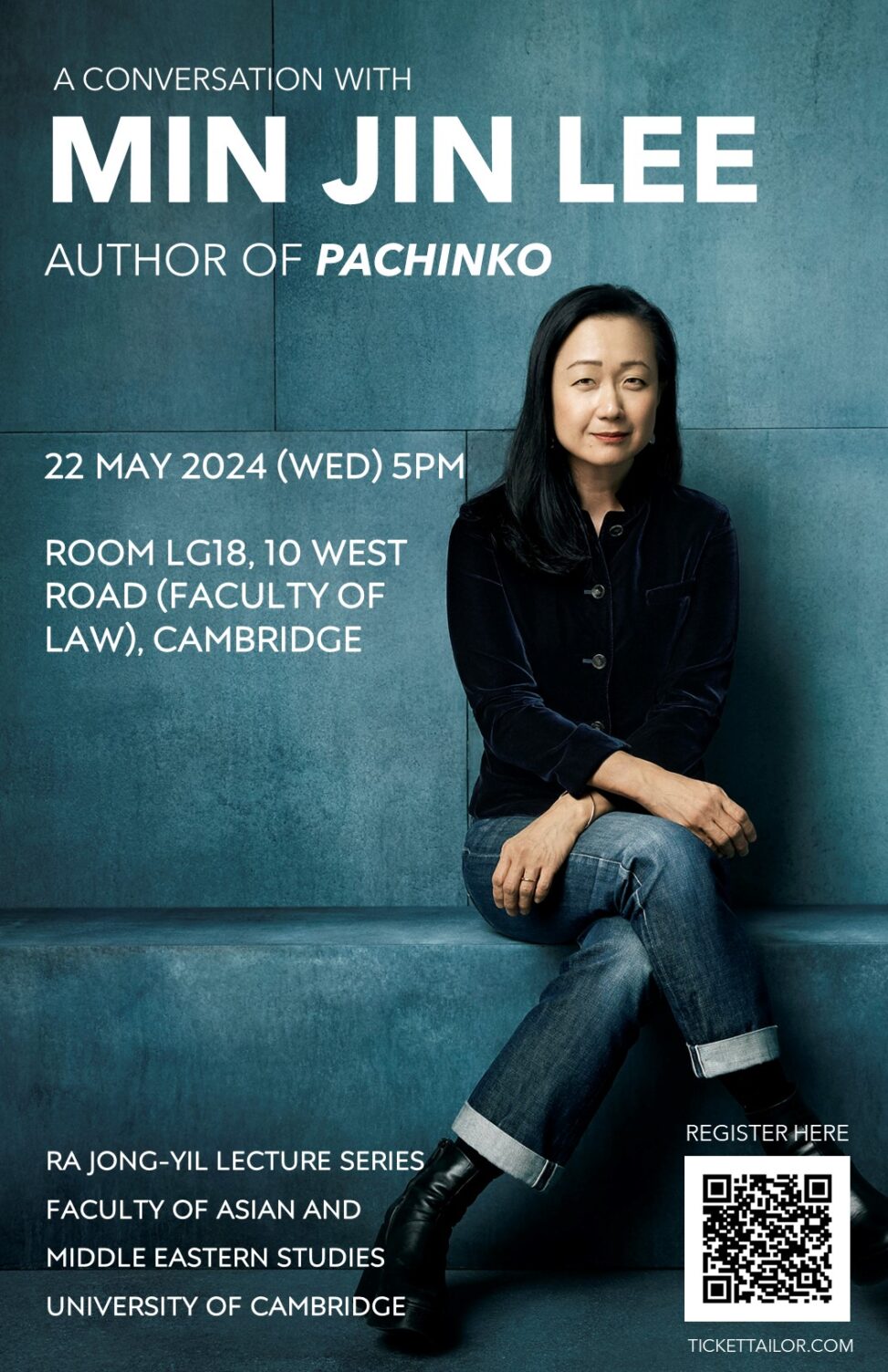After my long trip from Oxford to Cambridge, I finally arrived at the front yard of the University of Cambridge Law Library, where author Min Jin Lee would be giving a talk. As a passionate reader of his, who greatly enjoyed and appreciated reading Pachinko, and watching its Apple TV rendition, I was more than excited to listen to Min Jin Lee speak. Having spent months reading and writing in numerous libraries at Oxford, I was very excited to finally pursue my intellectual interests outside the classroom.
Listening to Min Jin Lee humbly introduce herself and incorporate many small jokes evoked a sense of internal affinity—I was able to relate to her experience as Korean American daughter of immigrants as well as her experience of going from an ethnic enclave and diverse community on the East Coast to attending a PWI (predominantly white institution) for university. Her familiar story and eloquent voice inflected with the occasional joke made for an overall enjoyable experience.
In discussing her humble beginnings as an author, as she transitioned from corporate law to historical fiction, she emphasized that she underwent many failures and setbacks. She emphasized her patience in doing the research for her books as well as the process of writing itself. Throughout the research process, which consisted of lengthy interviews and travels to speak with scholars on her topics of interest, she approached her interviewees and topics with care. Because she cared, she spent years on researching alone for her historical novels. I found this approach of care quite refreshing and inspiring. As someone aspiring to research on storytelling for post-graduate studies, I want to adopt this approach of care when I research, write, and share my findings.
Importance of Academia
Min Jin Lee also discussed the issue of relevance of academia in non-academic circles. She stressed the importance of the work of academics, from those doing niche and obscure research to those doing more general and popular work, in contributing to the production of knowledge. In stressing the importance of creating and making knowledge, she also underscored the importance of accessibility and relevance. Making academia relevant to everyone using language and communication strategies to relay such findings to popular culture is something that is especially pertinent as I set out to write my thesis and talk about it with those not in the field.
Being able to attach an inspiring voice to the stories that I read in Pachinko, I became more revitalized in crafting and designing my senior thesis. Listening to Min Jin Lee cemented my mission to investigate East Asian women’s literature and expand research in this field. While the historical fictions that she writes about are different from the thesis writing I intend to do, the interests in the lived realities and stories of real people as well as utilizing an approach centered on the notion of care are elements of Min Jin Lee’s work that I take inspiration from.
